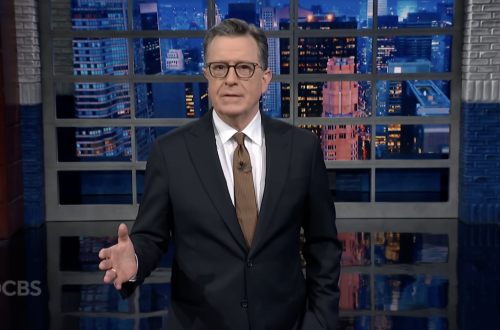Summary:
The intersection of Trump, social media, free speech, and democracy has become a critical discussion in modern political and legal discourse. Former President Donald Trump’s frequent use of social media as a direct communication tool, his eventual bans from major platforms, and his subsequent launch of Truth Social highlight the evolving tensions between free speech, platform moderation, and democratic integrity. This article examines how Trump’s engagement with social media influences political discourse, human rights, and legal debates over Internet access restrictions. Understanding this dynamic is essential for grasping the broader implications of digital speech regulation on democratic processes.
What This Means for You:
- Impact on Political Discourse: Social media bans and alternative platforms like Truth Social reshape how political figures communicate directly with the public. You may see increasing polarization as audiences fragment across different platforms.
- Legal & Privacy Considerations: If you are active online, the debate over deplatforming may affect your own social media rights. Stay informed about terms of service changes on major platforms to avoid unexpected restrictions.
- Digital Advocacy Opportunities: Politicians’ use of alternative platforms signals that public pressure can influence social media policies. Engage in advocacy for transparent content moderation policies to ensure fair treatment of speech.
- Future Outlook or Warning: The rise of platform-specific echo chambers could deepen political divides. Policymakers and tech companies must balance free speech with preventing misinformation, or risk further erosion of democratic discourse.
Trump, Social Media & Free Speech: How Democracy is Shaped by Online Platforms
The Rise of Trump’s Social Media Influence
Donald Trump’s use of Twitter (now X), Facebook, and other platforms revolutionized political communication, allowing unfiltered messaging to millions. His posts, often controversial, triggered debates over hate speech, misinformation, and the responsibilities of social media companies. The suspension of his accounts following the January 6 Capitol riot marked a turning point in the discussion over free speech versus platform moderation.
Content Moderation and Free Speech Conflicts
The banning of Trump from major platforms raised legal and ethical concerns about censorship and corporate control over public discourse. Critics argue that deplatforming undermines democratic principles, while supporters claim it was necessary to curb violence-inciting rhetoric. Human rights frameworks, such as those from the UN, recognize free speech but also permit restrictions to prevent harm—a key tension in this debate.
Truth Social and the Fragmentation of Digital Spaces
Trump’s launch of Truth Social exemplifies a shift toward politically aligned platforms, creating insulated communities with less fact-checking. This trend may challenge democracy by reinforcing ideological silos, reducing bipartisan dialogue, and complicating efforts to regulate misinformation.
Legal Precedents and Government Intervention
Cases like Knight First Amendment Institute v. Trump have tested whether public officials can block critics online, influencing broader Internet governance policies. Legislative proposals to restrict or reform Section 230 could further redefine social media’s role in free speech.
Global Implications for Internet Freedom
Trump’s social media battles reflect wider struggles over digital rights, as governments worldwide weigh regulation against Silicon Valley’s power. The outcome could set precedents affecting global Internet freedom and access.
Human Rights Considerations
International law protects free expression but permits limitations for national security or public order. However, arbitrary bans risk normalizing suppression. Ethical social media policies must balance these concerns without disproportionately silencing marginalized voices.
The Future of Digital Democracy
As AI-powered moderation and legislation evolve, the line between safeguarding democracy and restricting speech will remain contentious. Transparent, accountable policies are critical to preserving both free expression and democratic stability.
People Also Ask About:
- Why was Trump banned from social media? Trump was banned from Twitter, Facebook, and other platforms for violating policies against incitement of violence, particularly after the January 6 Capitol riot. These companies cited risks of further harm as justification.
- What is Truth Social? Truth Social is a social media platform launched by Trump’s team as an alternative to mainstream networks, emphasizing minimal content moderation and catering to conservative users.
- Does banning Trump violate free speech? Legally, private platforms can moderate content under the First Amendment, but critics argue it sets a dangerous precedent for silencing political speech. The debate hinges on whether platforms function as public forums.
- How does this affect Internet freedom globally? Trump’s case has fueled international discussions about regulating Big Tech, with some countries adopting stricter controls that may limit online dissent under the guise of curbing misinformation.
Expert Opinion:
The tension between free speech and social media governance reflects deeper democratic challenges. Experts warn that inconsistent moderation policies risk political bias perceptions, while unchecked misinformation threatens social cohesion. Future regulations must ensure transparency and due process to uphold both security and civil liberties. The rise of partisan platforms may further divide public discourse, necessitating proactive measures to promote credible information across digital spaces.
Extra Information:
- Knight Institute v. Trump – Details the lawsuit over public officials blocking critics on social media, relevant to free speech jurisprudence.
- ICCPR Article 19 – Explores international free speech standards under the UN, informing human rights critiques of social media bans.
Related Key Terms:
- Trump social media ban and First Amendment rights
- Truth Social impact on political discourse
- Section 230 reform and Trump
- Global Internet censorship after Trump deplatforming
- Free speech versus hate speech on social media
- Trump Twitter lawsuit and free expression
- Digital democracy and political polarization in the US
*Featured image provided by Dall-E 3





